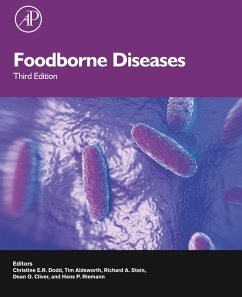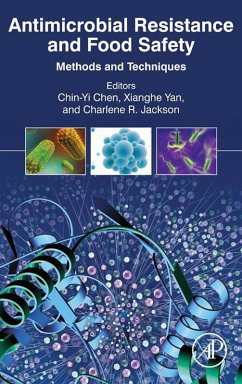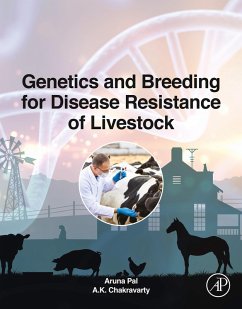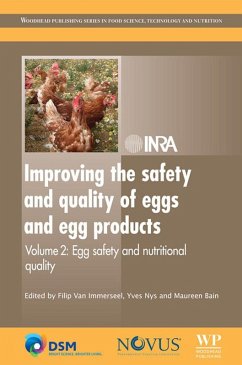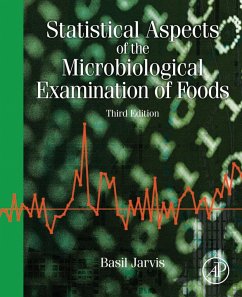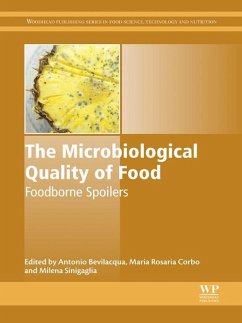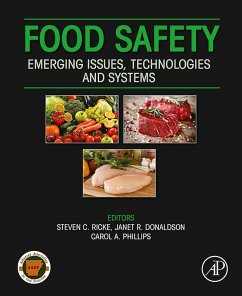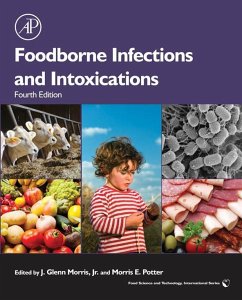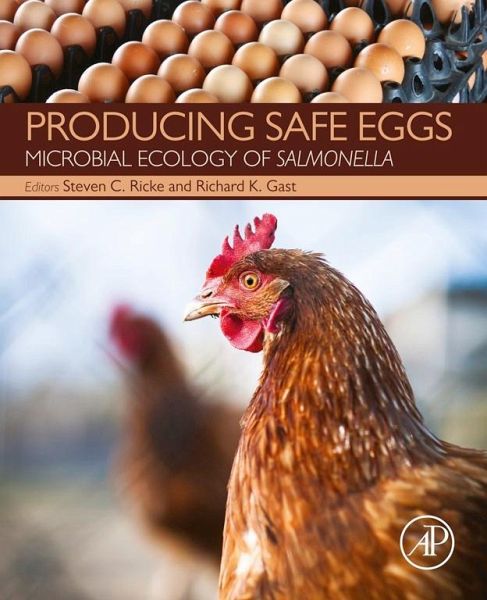
Producing Safe Eggs (eBook, ePUB)
Microbial Ecology of Salmonella
Redaktion: Ricke, Steven; Gast, Richard K
Versandkostenfrei!
Sofort per Download lieferbar
79,95 €
inkl. MwSt.
Weitere Ausgaben:

PAYBACK Punkte
40 °P sammeln!
Producing Safe Eggs: Microbial Ecology of Salmonella takes the unique approach of interfacing problems of Salmonella and microbial contamination with commercial egg production. It presents in-depth information on microbial contamination, safety and control, physiology, immunology, neurophysiology, and animal welfare, which makes this book a complete reference for anyone involved in the safe production of eggs and egg products in the food industry. This book discusses management and risk factors across the entire egg production process, including practical applications to decrease disease and c...
Producing Safe Eggs: Microbial Ecology of Salmonella takes the unique approach of interfacing problems of Salmonella and microbial contamination with commercial egg production. It presents in-depth information on microbial contamination, safety and control, physiology, immunology, neurophysiology, and animal welfare, which makes this book a complete reference for anyone involved in the safe production of eggs and egg products in the food industry. This book discusses management and risk factors across the entire egg production process, including practical applications to decrease disease and contaminated food products in poultry houses, processing plants and retail businesses. It is an integral reference for food scientists, food safety and quality professionals, food processors, food production managers, and food business owners, as well as students in food science, safety, microbiology, and animal science. - Includes pre- and post-harvest control measures to reduce microbial contamination and salmonella risks - Presents hot topics regarding vaccination, egg-in-shell pasteurization, and other new technologies currently under development - Provides risk assessment strategies for implementation in business operations - Discusses management and risk factors across the entire egg production process, including practical applications to decrease disease and contaminated food products in poultry houses, processing plants, and retail businesses - Offers a complete reference for anyone involved in the safe production of eggs and egg products in the food industry
Dieser Download kann aus rechtlichen Gründen nur mit Rechnungsadresse in A, B, BG, CY, CZ, D, DK, EW, E, FIN, F, GR, HR, H, IRL, I, LT, L, LR, M, NL, PL, P, R, S, SLO, SK ausgeliefert werden.




